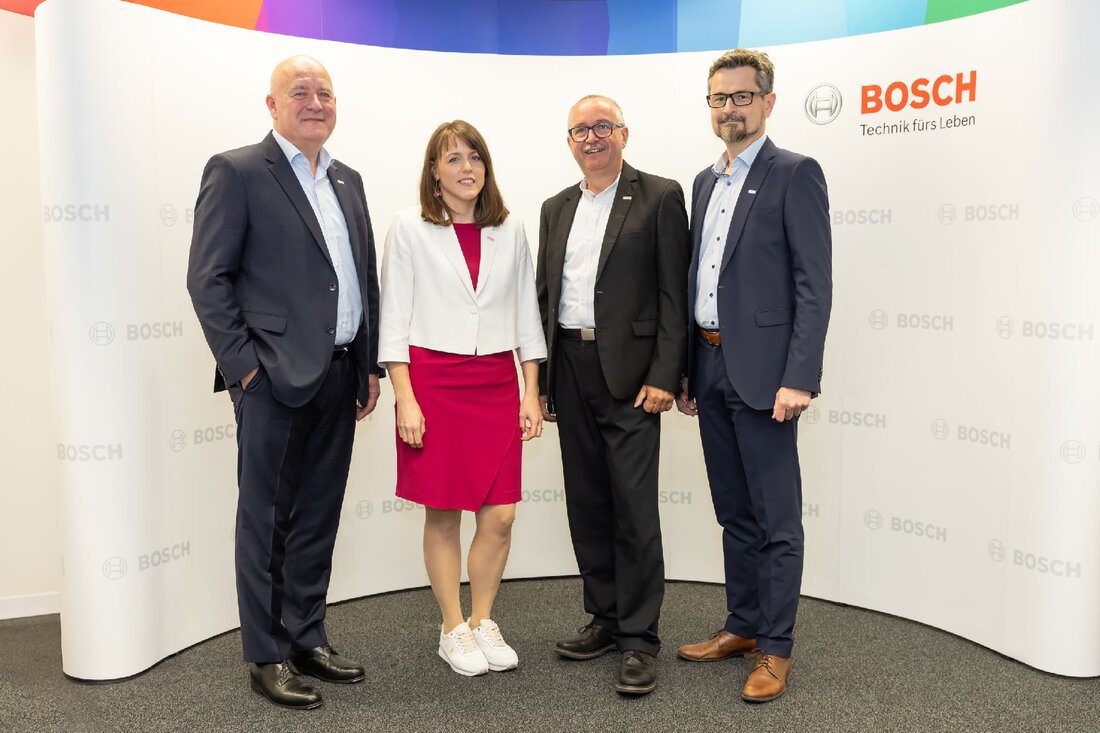Bosch is pushing future projects
Bosch continues to focus on innovation in Austria, although the company achieved 9.4 percent less sales in Austria in 2024 than in the previous year.

Bosch is pushing future projects
“The global decline in the automotive market and significant market weaknesses in some sectors have also impacted Bosch in Austria,” said Helmut Weinwurm, CEO of Robert Bosch AG and representative of the Bosch Group in Austria. The number of employees at Bosch in Austria was 3,366 in the reporting year. “Austria has established itself as an important R&D location within the Bosch Group,” emphasized Weinwurm. Around 200 million euros, or around 16 percent of sales, went into research and development at Bosch in Austria in the reporting year. With investments totaling 32 million euros, the company spent 44 percent more in Austria in 2024 than in the previous year. For example, investments were made in the methanol infrastructure at the Hallein production site and in the expansion of the hydrogen infrastructure at the Linz Engineering Center. “We are successfully driving forward innovations in Austria and helping to shape future technologies in growth areas such as hydrogen and electrification,” explained the Bosch manager.
Hydrogen and electronics
Bosch in Austria is developing a wide range of hydrogen solutions for global use - from electrolysis stacks, the central element in hydrogen production, to a new generation of large engine injection systems for alternative fuels such as methanol. In addition, the company implements various engineering projects in the field of mobility technology in Austria - for example software and hardware development for all types of drives, networked mobility solutions and electrical/electronic architectures in modern vehicles as well as so-called "SoC" (Systems on Chip) for automotive radar systems. Bosch's sales development in Austria varied across sectors in the previous year. The Mobility division remained significantly behind the previous year in the 2024 financial year due to declining vehicle production. An exception is the aftermarket business with spare parts, diagnostics and workshop technology. Bosch achieved a pleasing increase in sales in Austria.
Uncertain forecast 2025
For the current year, Bosch in Austria is preparing for a very challenging environment with a high level of uncertainty - also with regard to the consequences of additional tariffs and possible infrastructure packages. "At the beginning of the year there was a slight trend towards improvement in the economy in Austria. Since March, the economic prospects have been dampened by increased uncertainty. Economic tailwinds are probably not expected until 2026," said Weinwurm. In the first quarter of this year, the Bosch Group's sales on the Austrian market were below the previous year's level. Given the many uncertainties, the company did not provide any forecast for the year as a whole. In any case, the company expects important growth impulses from its collaboration with start-ups. The Bosch Group announced a new fund for venture capital: Bosch Ventures is providing 250 million euros. Bosch expects further growth incentives in its core mobility business, particularly from electromobility, hydrogen and software.

 Suche
Suche
 Mein Konto
Mein Konto